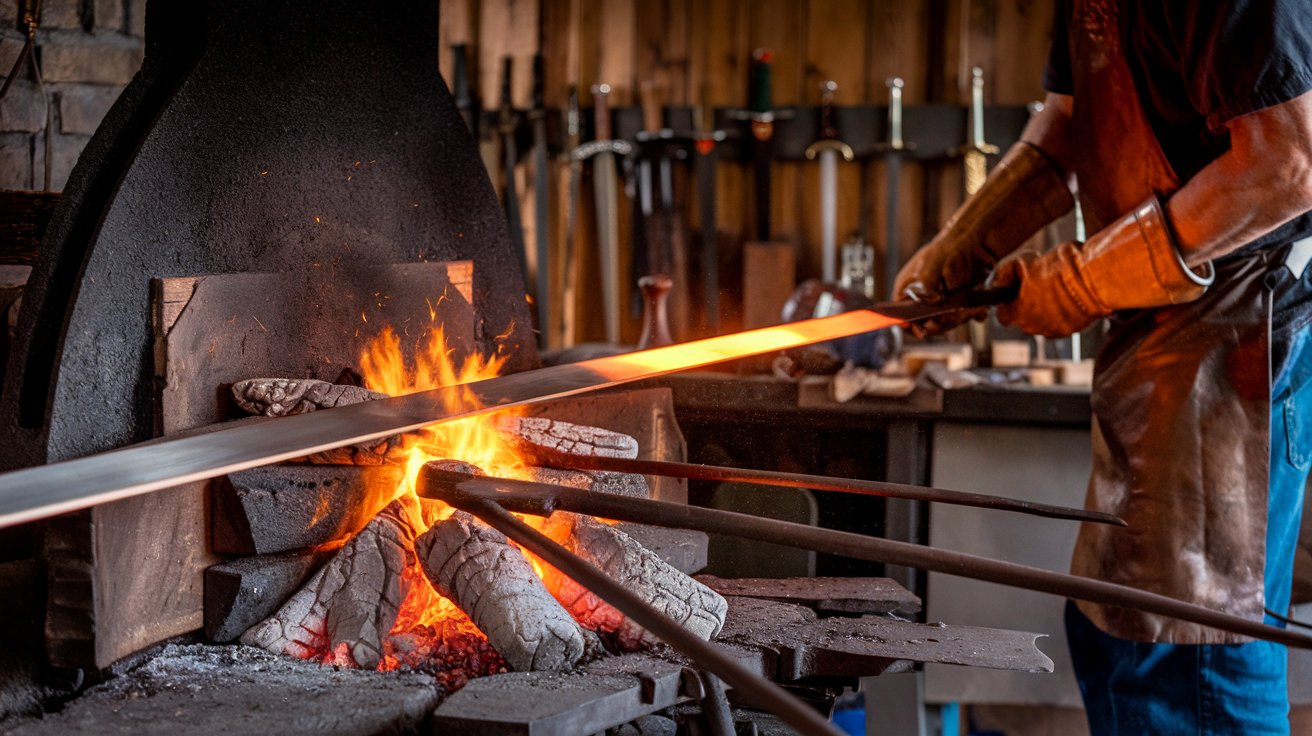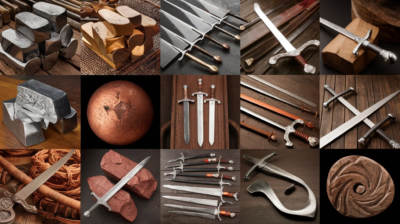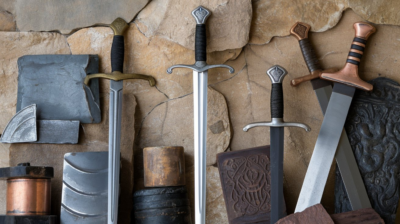Blog
Metal for Sword Making: All You Need to Know

A sword can only be properly created when the right metal is chosen. This metal is important in determining how durable, functional, and enhancing the Damascus steel sword will be in appearance. Most importantly, if you’re having a knife custom-made or crafting one yourself, you can easily track which metals are used. This guide also describes the metals commonly used in sword making, their properties, and recommends the best one for your needs.
Selection of metal for swords
Finding the best metal for a sword is important as it determines how well the sword can be able to combine power, flexibility, and sharpness. This one will focus on various metals used in a sword construction around their advantages and properties what makes the best material for your weapon of choice.
Metals Used in Sword Making
1.Carbon Steel
It is this toughness of the sword which makes carbon steel one of the popular materials nowadays. People widely know and appreciate that these steels contain carbon, which enhances their toughness. The average grades can be summarized as follows. Carbon is very useful in sword making.
- 1045 Steel: This sword is appreciated for its somewhat decent combination between hardness and flexibility. It is a straightforward alloy to work and heat-treat which makes it beginner friendly.
- 1060 Steel: This one combines superior hardness to delaminating and outstanding edge retention which makes it awesome for lots of functional swords which deserve pressure.
- 1095 Steel: It has good hardness as well as excellent sharpness but it can become brittle on improper heat treatment.This sword steel grade is used to make high-performance cut-to-cut swords.
2.Damascus Steel
Damascus steel has become quite popular for its unique designs and its ability to withstand heavy impact. Usually, it has been manufactured by stacking and forge welding sheets of steel. Present-day Damascus steel is an impressive simile, as it allows:
- Decoration: The unique patterns make swords made of the material an excellent attractive and collectible item.
- Strength: The laminate structure increases the impact and chip resistance.
3.Stainless Steel
Stainless steel is resistant to staining and rusting. Though in sword making it is not so conventional, it has advantages like:
Saves Time: Corrosion resistance renders them optimal in ornamental items.
Savings: Usually cheaper than carbon as well as Damascus steel.
Nevertheless, they are by no means ideal for everyday swords compared to carbon steel swords, as kitchen knives tend to have lower hardness and inferior edge retention.
4.Tool Steel
Tool steel has excellent hardness and resistance to wear and tear. Some types like O1 or A2 tool steel gives the following benefits.
- Hardenability: Blades fashioned from it can be heat treated to high levels, allowing them to retain sharpness especially in knives used to cut hard materials.
- Edge retention: abilities make them ideal for swords that will be put into practical use.
Picking A Metal For Your Sword
When choosing a metal for a sword, one considers the following:
- Intended use: Establish whether the sword will be used for real life applications such as fighting or practice or if it is just for decoration purposes. Whereas functional swords need stronger metals such as carbon or tool steels, decorative swords can be made from patterns of nikko Damascus steel or stains of stainless steel.
- Cost: High carbon steel and tool steels are mostly costly. Stainless steels are used to make more cost-effective decorative swords.
- Level of experience: A beginner will be pleased to know that 1045 carbon steel is more friendly especially to those new at the work, while a pro smith can take in higher carbon steels and Damascus for more advanced projects.
Selecting the Best Material for Sword Making
It is imperative to consider the selection of materials for sword making since it involves the selection of a material that meets you required strength, durability and other appealing desires. Carbon steel is the most balanced in terms of these aspects while still allowing for some flexibility; Damascus steel has the most stunning features and reliable strength; and for minimal display pieces, stainless steel is best. Tool steel is the best for quality functional swords. Familiarity with each metal’s characteristics in relation to your sword’s usage; how much you’re willing to spend on it; your skills, and so on, will assist you in making a choice that allows you to create a sword that fully serves its purpose yet still looks great.

